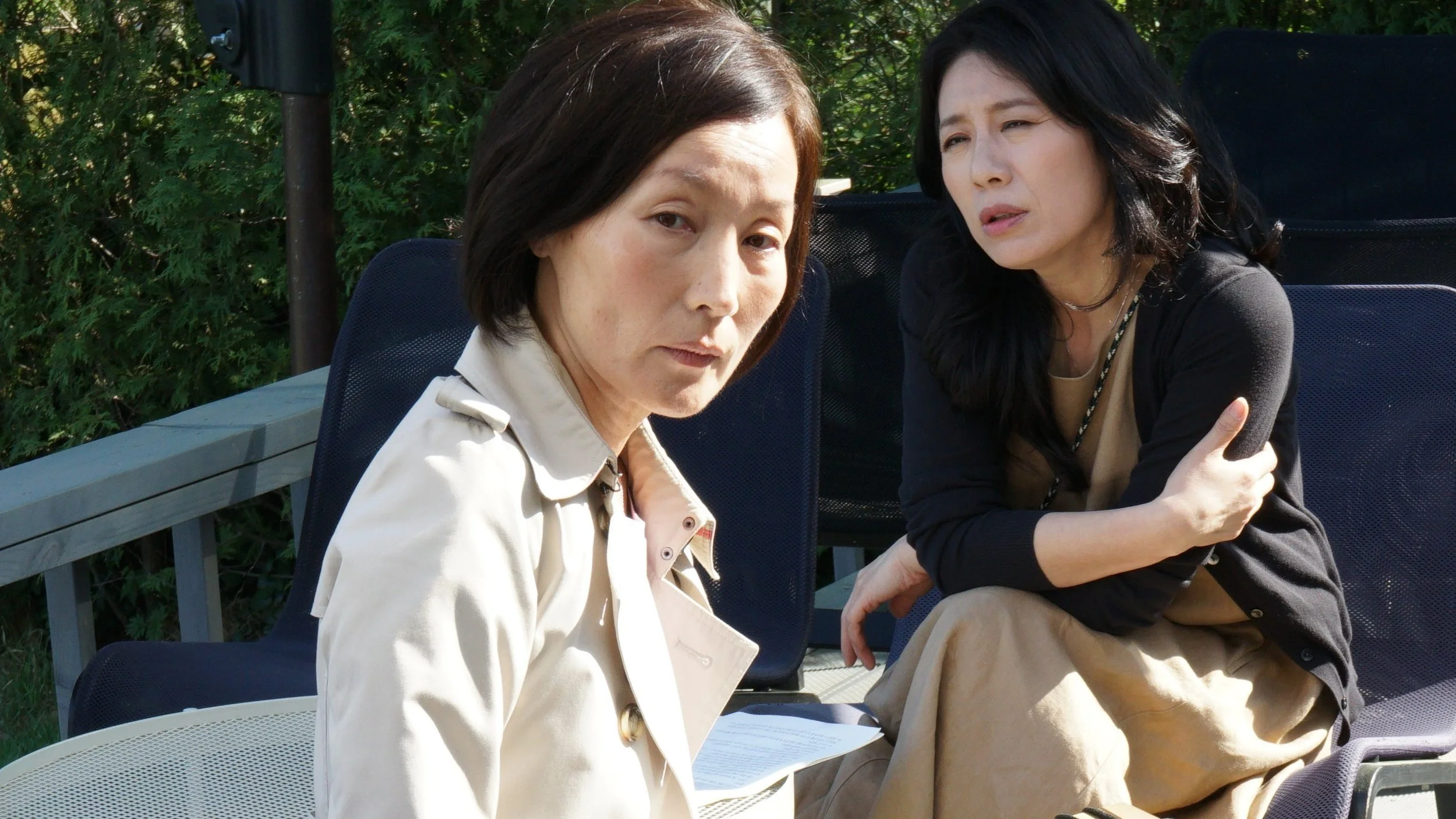In Front of Your Face
The festival-fêted Hong Sang-soo returns with another wonderfully naturalistic South Korean drama.
The South Korean filmmaker Hong Sang-soo is very much his own man in more senses than one. First, there is the fact that he is credited not just as the writer and director of In Front of Your Face but also as its producer, photographer, editor and composer. Secondly, he has created a style that gives his work a stamp that renders it unlike that of anybody else. That does mean that some audiences will regard a film like this as too minimal by far but, if you are on his wavelength, it provides a great experience.
Hong’s approach is designed to make us feel that we are eavesdropping on life itself: in every way his film is the reverse of being showy. There are three central characters here, Jeongok (Cho Yunhee) who is seen at home in Seoul, her sister Sangok (Lee Hyeyoung) who has been living in America and is now in Korea on a visit and a film director, Jaewon (Kwon Haehyo). The latter has a lunchtime appointment with Sangok who is no longer young but who in the past has had a career as a movie actress. The meeting between these two involves an offer of a comeback because Jaewon had been so impressed by her unique qualities in a past role that he wants to write a screenplay built around her.
This may sound like a conventional storyline but Hong is not greatly concerned with plot as such. The second half of the film which features this meeting does reveal in time a dramatic situation which has been hidden up to that point. Nevertheless, in contrast to that, the first half consists almost entirely of conversations and during all of these Hong keeps his camera static once set up. Throughout we feel that we are seeing real people in ordinary situations and this does mean that the film’s success or failure depends on viewers responding to the characters in depth. When I first saw a film by Hong it was 2013’s Nobody's Daughter Haewon and it failed to involve me, but the second was 2020’s The Woman Who Ran which so captured me on its own terms that I acclaimed it a masterpiece. In Front of Your Face is almost as good.
The precision of the observation is the key factor here, both Hong’s ability to make the central figures utterly real and the cast’s wonderful and subtle acting which creates the impression that the characters actually exist. What happens here does so within the course of a single day and much of it may appear inconsequential if one is looking for a narrative, but again and again Hong chooses elements that can spark recognition and empathy. Thus, the early scenes beautifully illustrate the sibling relationship in all its aspects (Hong is brilliant at writing female roles). Then, later on, Sangok takes a detour to visit the former site of her childhood home and speaks to the current owner, this being a scene that speaks directly to the viewer’s own comparable memories. This segment also introduces the sounds of a children's game after which a six-year-old makes a brief appearance on screen. Without undue emphasis, this speak volumes since while Jeongok has a grown son it is likely that Sangok has never been a mother.
The interview in the second half between Sangok and Jaewon includes a moment when a guitar is produced and Sangok, who had once played the instrument, tentatively takes it up again. It's another moment that resonates with the viewer in a film which on occasion allows Sangok to speak as a commentator and what we hear in this way and through private comments also reveals her reliance on prayer. Indeed, while plotting is decidedly limited, In Front of Your Face does invite the audience to share Sangok’s belief that one should treasure the present moment in one's life to the full (the very title is linked to that notion and it is offered as a philosophy of life). Once we reach the last half-hour of the film, something closer to a storyline develops and it moved me rather less than I would have expected. Consequently, I regard The Woman Who Ran as the greater achievement, but not since Ozu have we had a filmmaker who can so compellingly make you feel that the people on screen are as real as individuals that you have actually met rather than being the creation of actors. Furthermore, in a manner directly comparable to that of Ozu, Hong has developed a style of filming geared to expressing this but one which is entirely personal to himself. If you don't know Hong’s work, this is a good place to start.
Original title: Dangsin-eolgul-apeseo.
MANSEL STIMPSON
Cast: Lee Hyeyoung, Cho Yunhee, Kwon Haehyo, Shon Seokho, Kim Saebyeok, Ha Seungguk, Seo Younghwa, Lee Eunmi, Kang Yiseo.
Dir Hong Sang-soo, Pro Hong Sang-soo, Screenplay Hong Sang-soo, Ph Hong Sang-soo, Ed Hong Sang-soo, Music Hong Sang-soo.
Jeonwonsa Film Co.-New Wave Films.
85 mins. South Korea. 2021. US Rel: 6 May 2022. UK Rel: 23 September 2022. Cert. 12A.


